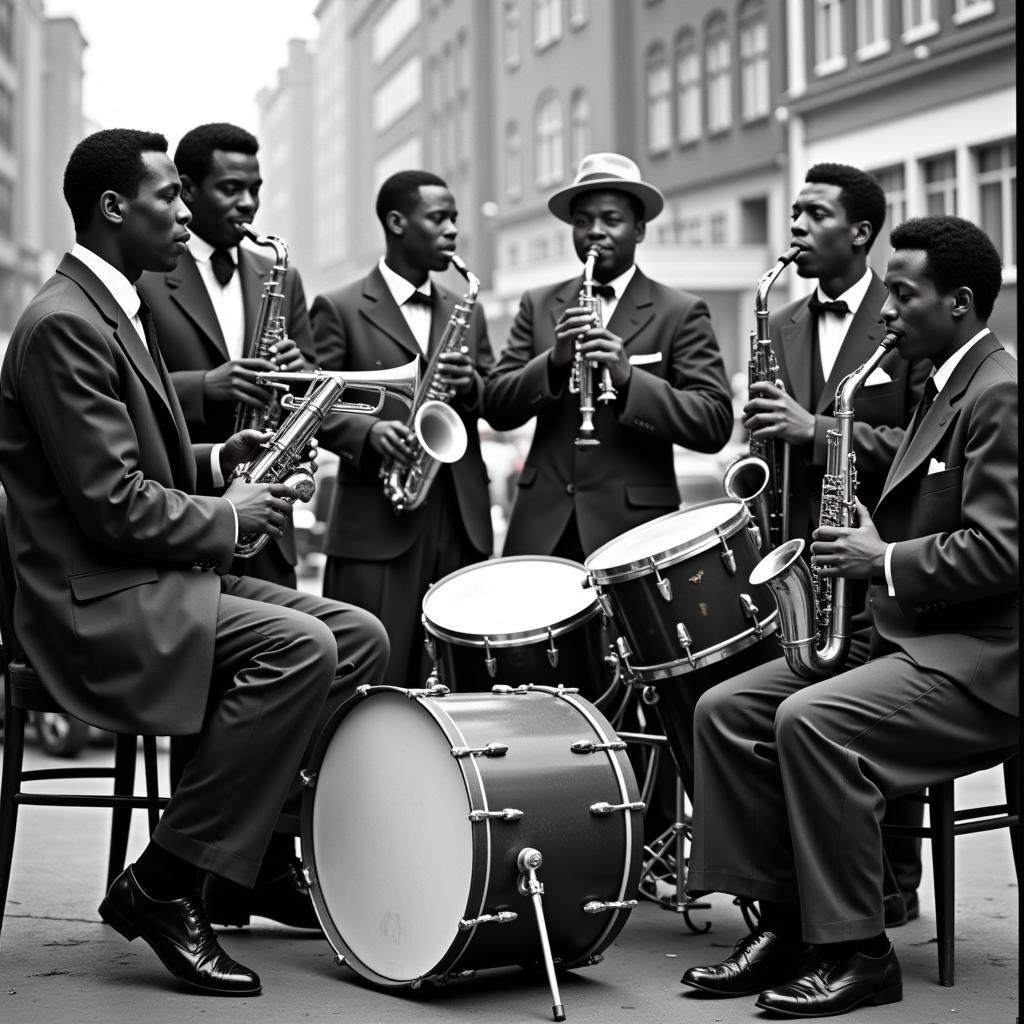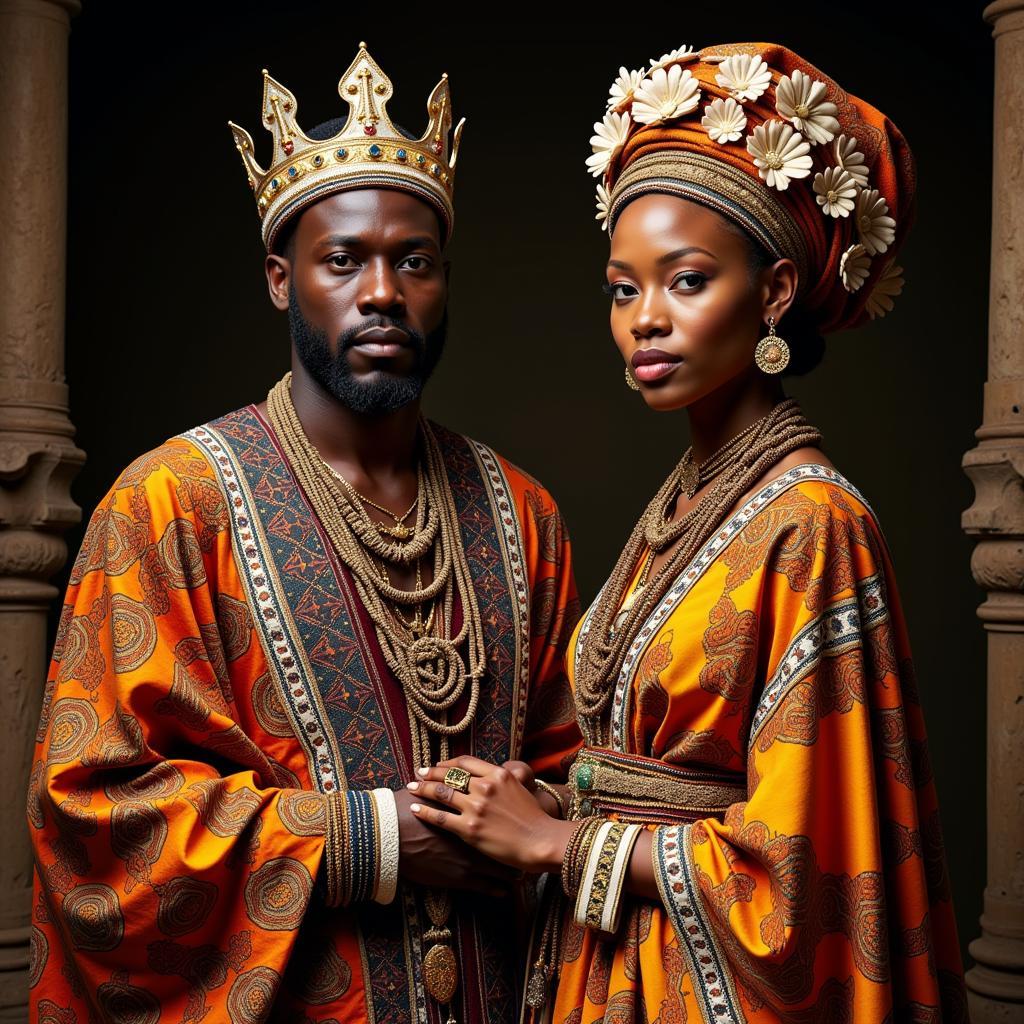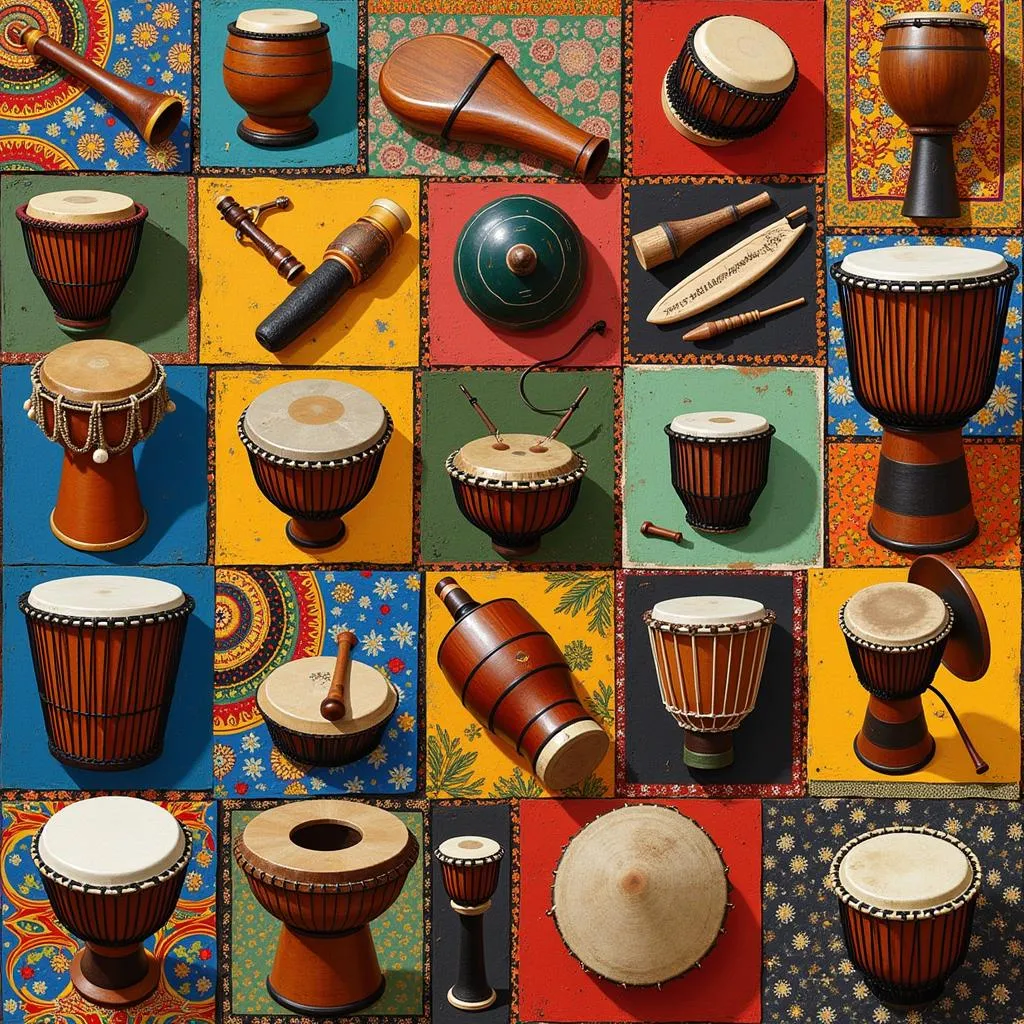The Vibrant Soul of the African Jazz Orchestra
The African Jazz Orchestra represents a powerful fusion of tradition and innovation, captivating audiences worldwide. Exploring the rich tapestry of African musical traditions interwoven with the dynamic energy of jazz, this genre offers a unique and compelling auditory experience. From the bustling streets of Lagos to the serene landscapes of the Serengeti, the African jazz orchestra echoes the diverse soundscape of the continent.
A History Steeped in Rhythm: Tracing the Roots of African Jazz Orchestras
African jazz orchestras didn’t emerge overnight. Their roots are deeply embedded in the rich soil of African musical heritage. Traditional African music, with its intricate rhythms, call-and-response vocals, and diverse instrumentation, laid the foundation for this exciting genre. The arrival of jazz, brought over the Atlantic through cultural exchange and the transatlantic slave trade, provided a new framework for these existing musical traditions. The two forms began to intertwine, creating a unique hybrid that captured the spirit of both worlds. Early pioneers, experimenting with instrumentation and improvisation, paved the way for the modern African jazz orchestra.
 Early Days of African Jazz Orchestras
Early Days of African Jazz Orchestras
The Influence of African American Instrumentalists and Composers
The impact of African American instrumentalists and composers on the development of jazz is undeniable. Figures like Louis Armstrong and Duke Ellington had a profound influence on musicians across the globe, including Africa. Their innovative approaches to harmony, rhythm, and improvisation resonated deeply with African musicians, inspiring them to incorporate these elements into their own musical traditions. This cross-cultural exchange further enriched the evolving sound of the African jazz orchestra. The influence of african american instrumentalists can be heard in the complex harmonies and improvisational solos that characterize many African jazz compositions.
Exploring the Diverse Sounds of African Jazz Orchestras
African jazz orchestras are not a monolithic entity. Across the continent, different regions and countries have developed their own unique interpretations of the genre. From the vibrant highlife music of West Africa to the smooth sounds of Ethio-jazz, each style reflects the specific cultural influences and musical traditions of its origin. This diversity is one of the most compelling aspects of African jazz, offering a rich tapestry of sounds and rhythms.
What Instruments are Commonly Used in an African Jazz Orchestra?
A typical African jazz orchestra incorporates a wide range of instruments, blending traditional African instruments with Western jazz instrumentation. While the specific combination varies depending on the region and style, some common instruments include: drums (djembe, talking drum), kora, balafon, saxophone, trumpet, trombone, and double bass. This fusion of instruments creates a unique sonic landscape, bridging the gap between ancient traditions and modern musical expression. The incorporation of traditional instruments adds a distinct flavor to the music, setting it apart from other forms of jazz.
Dr. Kwame Nkrumah, a renowned ethnomusicologist, notes, “The African jazz orchestra is a testament to the power of cultural fusion. It demonstrates how different musical traditions can come together to create something truly unique and beautiful.”
How Does African Cinematic Music Contribute to the Genre?
The influence of african cinematic music can also be heard in some African jazz orchestras. The dramatic scores composed for African films often incorporate elements of jazz and traditional African music, creating a powerful and evocative soundscape. This cinematic influence can be seen in the use of orchestral arrangements and the incorporation of narrative elements into the music.
The Future of African Jazz Orchestras
The African jazz orchestra continues to evolve and innovate, pushing the boundaries of the genre. Contemporary musicians are experimenting with new sounds and technologies, blending traditional instruments with electronic music and incorporating influences from other genres. This ongoing exploration ensures that African jazz remains a vital and dynamic force in the global music scene. The increasing popularity of African music on the international stage is creating new opportunities for African jazz orchestras to reach wider audiences.
Conclusion: The Enduring Legacy of the African Jazz Orchestra
The African jazz orchestra represents a powerful expression of African identity and creativity. From its rich historical roots to its ongoing evolution, this vibrant genre continues to captivate audiences around the world. The fusion of traditional African rhythms and the dynamic energy of jazz creates a truly unique and compelling musical experience. The future of the African jazz orchestra is bright, promising continued innovation and a growing global presence.
FAQ
- What is the difference between African jazz and American jazz?
- Who are some prominent African jazz musicians?
- Where can I listen to African jazz music?
- What are some key characteristics of Ethio-jazz?
- How has colonialism impacted the development of African jazz?
- What is the role of improvisation in African jazz?
- Are there any festivals dedicated to African jazz music?
For further information, explore our articles on african american composers 21st century and african american classical music composers. You may also be interested in reading about african american sax players.
When you need assistance, please contact us by phone: +255768904061, email: kaka.mag@gmail.com, or visit us at: Mbarali DC Mawindi, Kangaga, Tanzania. Our customer service team is available 24/7.


